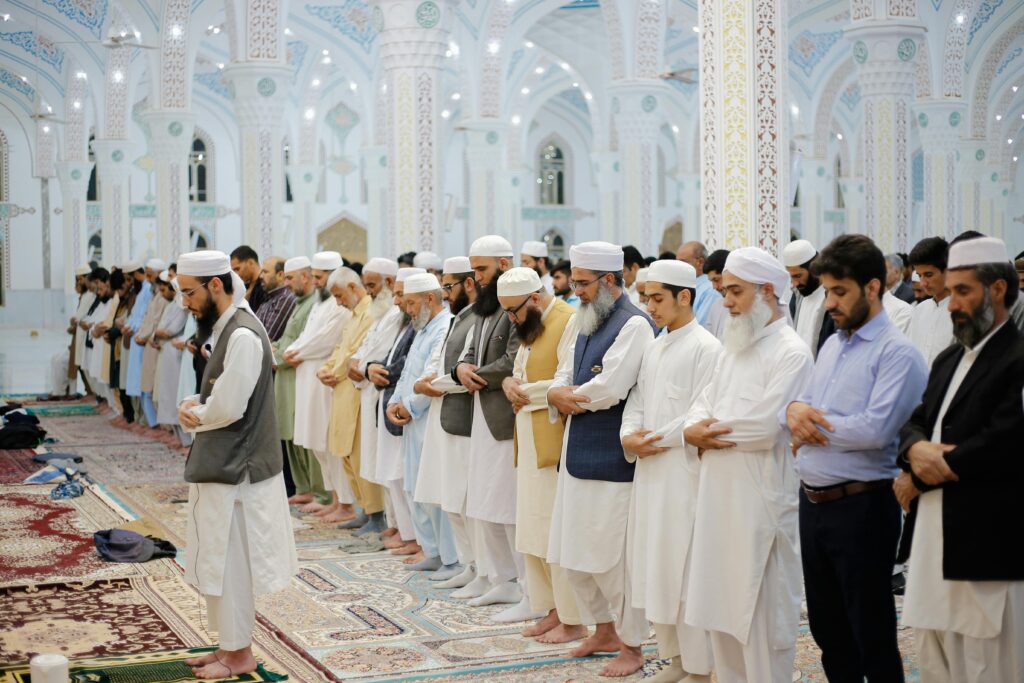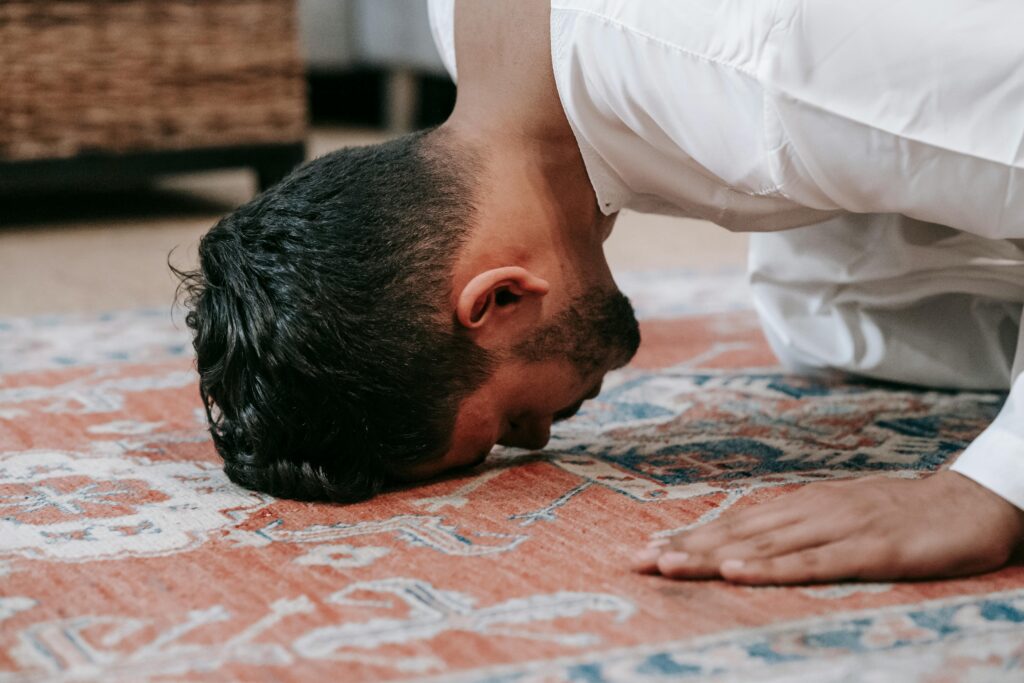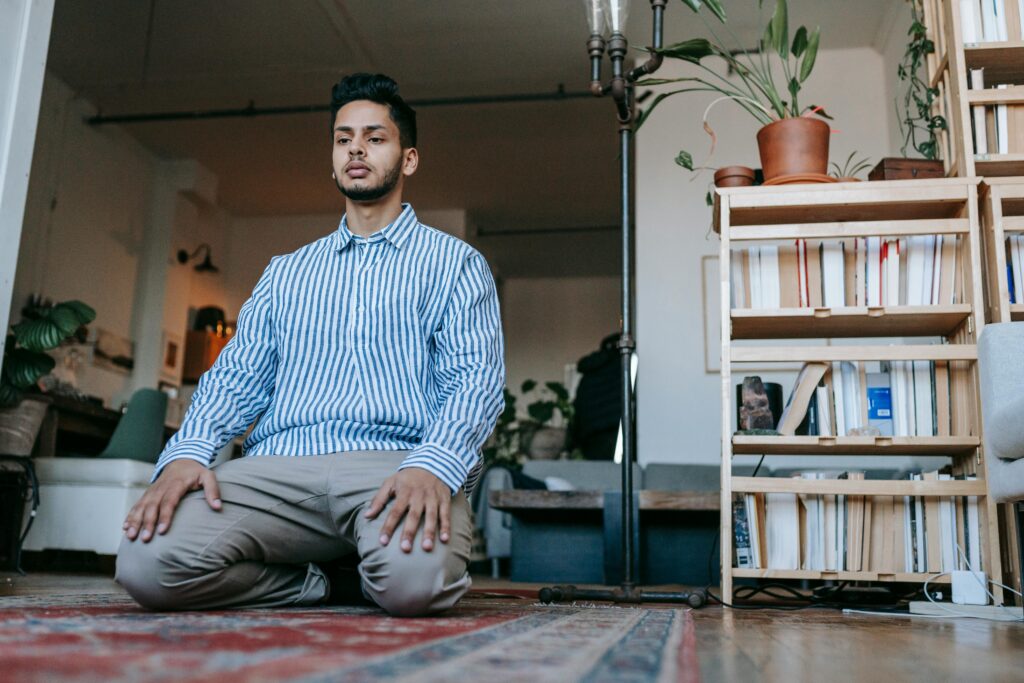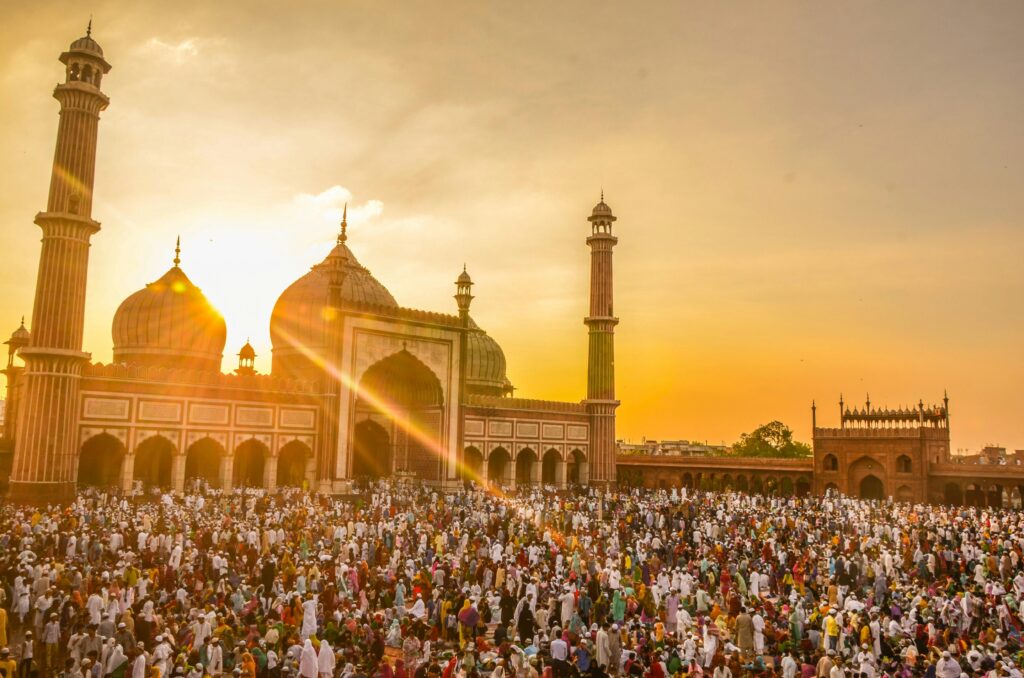Table of Contents
How to Pray Fajr: Introduction
The Fajr prayer, marking the beginning of the day, holds a paramount position in Islamic practice. This dawn prayer, being one of the five mandatory Salah (prayers) in Islam, is not just a ritual but a way to start the day with blessings, guidance, and a connection with the Creator. The significance of Fajr is mentioned numerous times in the Quran and Hadith, emphasizing its importance in a Muslim’s life. Performing the Fajr prayer can profoundly impact one’s spiritual and worldly life, embedding a sense of peace, discipline, and mindfulness from the day’s start.
Fajr, consisting of two Rakats of Sunnah followed by two Rakats of Fard, is prayed during the time just before sunrise. This time is considered one of the most peaceful and blessed times of the day. It is a moment when the world is still, offering a unique opportunity for spiritual reflection and connection with Allah. The act of waking up early, purifying oneself, and standing in prayer while many are still asleep is seen as a demonstration of faith and devotion, earning the believer immense rewards.
Engaging in the Fajr prayer regularly enhances one’s discipline, instills a sense of punctuality, and strengthens the soul by aligning it with the divine will at the start of each day. It is a time to seek guidance, make Dua (supplication), and reflect on one’s purpose and direction in life. The tranquility and peace that come from performing Fajr are unmatched, providing spiritual nourishment and clarity of mind.
5 Pillars of Islam: Essential Practices for Spiritual Growth

Understanding Fajr Prayer
The Fajr prayer, performed before dawn breaks, symbolizes the Muslim’s faith and commitment to Allah. It is a time when believers stand before their Creator, seeking forgiveness, guidance, and strength for the day ahead. Fajr, the first of the five daily prayers, sets the tone for a day filled with piety, discipline, and mindfulness.
Significance in a Muslim’s Life
Fajr prayer is not merely a set of physical movements but a profound act of worship that connects the soul with Allah. Its significance is manifold; spiritually, it represents the light of guidance at the start of a new day. Practically, it instills discipline and time management, as adherents adjust their schedules to accommodate this early morning prayer. Moreover, the communal aspect of Fajr, when prayed in congregation, strengthens the bonds of brotherhood and community among Muslims.
Number of Rakats
The Fajr prayer comprises two main parts: two Rakats of Sunnah Mu’akkadah (confirmed Sunnah) followed by two Rakats of Fard (obligatory prayer). The Sunnah Mu’akkadah is highly emphasized and should not be skipped without valid reasons. It is a practice established by the Prophet Muhammad (peace be upon him) to perform these two Rakats before the obligatory part of the Fajr prayer. The Fard Rakats are mandatory and constitute the essence of the Fajr prayer.
How to Pray Fajr: Step-by-Step Guide
How to pray Fajr is like other Islamic prayers, involving a series of steps and recitations. The following guide outlines the process from preparation to completion.
Preparatory Steps for Fajr Prayer
- Waking Up for Fajr: Set an alarm for the Fajr time, which varies throughout the year based on the lunar calendar. Waking up early is easier with a sincere intention and going to bed early.
- Making Wudu (Ablution): Before the prayer, perform Wudu, a ritual cleansing of the body that includes washing the hands, mouth, nostrils, arms, head, and feet.
How to Pray Fajr: The Sunnah Rakats
- Intention (Niyyah): Begin with the intention in your heart to perform the two Rakats of Sunnah for Fajr prayer. This intention does not need to be spoken aloud but should be a firm resolution.
- Starting the Prayer (Takbir): Raise your hands to your ears and say “Allahu Akbar” (Allah is the Greatest), signifying the start of your prayer.

- Recitation: After the opening supplication, recite Al-Fatiha (the Opening Chapter of the Quran) followed by another Surah or verses from the Quran. In the first Rakat, it is Sunnah to recite Surah Al-Kafirun and in the second Rakat, Surah Al-Ikhlas, though any Surah can be recited.

- Ruku (Bowing Down): After the recitation, say “Allahu Akbar” and bow down in Ruku, placing your hands on your knees and keeping your back straight. Say “Subhana Rabbiyal Adhim” 3 times.

- Sujood (Prostration): Stand up from Ruku, saying “Sami’ Allahu liman Hamidah,” and then perform two Sujoods (prostrations), saying “Allahu Akbar” as you go down. In Sujood, touch your forehead, nose, both palms, both knees, and all toes to the ground. Say “Subhana Rabbiyal A’la.” 3 times.

- Sitting Position: After the two Sujoods, sit on your legs for a moment of rest, then stand up for the second Rakat.

How to Pray Fajr: Performing the Fard Rakats
The process for performing the Fard Rakats is similar to the Sunnah Rakats, with the intention (Niyyah) specifically for the obligatory Fard prayer of Fajr.
Completing the Prayer
After the second Rakat of the Fard prayer, sit for the final Tashahhud, Darood Ibrahimi, and conclude with Tasleem by turning your head to the right and then to the left, saying, “As-salamu alaykum wa rahmatullah” (Peace and mercy of Allah be upon you).
Common Mistakes to Avoid While Praying Fajr
While striving to perform Fajr prayer diligently, it’s essential to be aware of common pitfalls:
- Overlooking the Sunnah Rakats: Though not obligatory, missing the Sunnah Rakats regularly deprives one of the extra reward and spiritual preparation for the Fard prayer.
- Incorrect Timings: Ensure you pray within the correct time window for Fajr, which ends at sunrise.
- Rushing Through the Prayer: Maintain tranquility and focus throughout the prayer, avoiding haste.

FAQs
Can you pray Fajr after sunrise?
If one misses the Fajr prayer unintentionally, it should be prayed as soon as one remembers or is able to do so. Although it is highly emphasized to pray Fajr within its prescribed time—before sunrise—making up the missed prayer (Qada) is necessary to fulfill one’s religious obligation. The Prophet Muhammad (peace be upon him) instructed to perform the missed prayers as soon as a person remembers them. However, praying after sunrise is not ideal and should be an exception rather than a regular practice.
Do you pray Fajr on Eid?
On Eid days, the regular Fajr prayer is prayed as usual in its prescribed time. However, the Eid prayer itself is a separate prayer that is performed later in the morning, after the sun has fully risen but before it reaches its zenith (midday). Therefore, Muslims perform both the Fajr prayer in its early dawn time and the Eid prayer later in the morning on Eid days.
How late can you pray Fajr?
The time for Fajr prayer begins at the break of true dawn, when the morning light appears across the horizon, and lasts until sunrise. It is best to pray at the beginning of its time window, but if one has not prayed it yet, Fajr can still be performed as long as the sun has not started to rise. Once the sun begins to rise, the time for Fajr ends, and one should wait until the sun is fully risen before making up the missed Fajr prayer.
What should I do if I accidentally sleep through Fajr?
If you accidentally sleep through Fajr, perform the prayer as soon as you wake up. It is a reminder of the importance of setting multiple alarms or creating an environment conducive to waking up early. Seeking forgiveness and making a sincere intention to improve one’s discipline regarding prayer times is also recommended.
How can I make waking up for Fajr easier?
Making waking up for Fajr easier involves both spiritual and practical steps. Spiritually, make a sincere intention before sleeping to wake up for Fajr and ask Allah for assistance. Practically, try to sleep early, maintain a consistent sleep schedule, use multiple alarms, and possibly place the alarm clock far from your bed to ensure you get up. Engaging with a community or having a prayer buddy can also motivate and help you maintain the practice of praying Fajr on time.
How to Pray Fajr: Conclusion
Praying Fajr on time is a beautiful and fulfilling way to start the day, rooted in discipline, spirituality, and a direct connection to Allah. It sets a positive tone, offers a moment of peace before the day’s hustle, and aligns one’s actions with faith from the day’s beginning. While challenges in maintaining consistency with Fajr prayer are natural, the effort to overcome them is immensely rewarding, both spiritually and in terms of personal growth.

